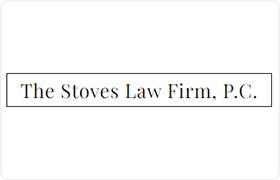Montevallo Criminal Lawyer, Alabama
Sponsored Law Firm
-
 x
x

Click For More Info:
-
The Stoves Law Firm, P.C.
9 Office Park Cir Suite 105 Birmingham, AL 35223» view mapCriminal Defense Legal Expertise You Can Rely On
The Stoves Law Firm, P.C. provides outstanding Criminal Defense and Litigation services to individuals and businesses throughout the State of Alabama.
800-818-9390
Christopher Rhett Smitherman
✓ VERIFIEDCriminal, Estate, Divorce & Family Law, Accident & Injury, Personal Injury
James Campbell Pino
✓ VERIFIEDFelony, Family Law, Personal Injury, DUI-DWI
With over 46 years of active trial experience, attorney Jim Pino has earned a solid reputation within the legal community for well-prepared and aggres... (more)
John Martin Eades
Immigration, Divorce & Family Law, Criminal, Bankruptcy & Debt
Status: In Good Standing Licensed: 26 Years
Harry Emmanuel Scozzaro
Estate, Divorce & Family Law, Criminal, Accident & Injury
Status: In Good Standing Licensed: 21 Years
Allen M Shabani
Divorce & Family Law, Criminal, Accident & Injury, Litigation
Status: In Good Standing Licensed: 14 Years
Justin Neal Smitherman
Real Estate, Criminal, Bankruptcy & Debt, Accident & Injury
Status: In Good Standing Licensed: 12 Years
Jill T. Karle
Traffic, Workers' Compensation, Family Law, Criminal
Status: In Good Standing Licensed: 32 Years
Jeffrey Bryan Pino
Estate, Personal Injury, Litigation, Criminal, Family Law
Status: In Good Standing Licensed: 18 Years
Foster D. Key
Alimony & Spousal Support, Adoption, Criminal, Animal Bite
Status: In Good Standing Licensed: 30 Years
 Jay Stoves Birmingham, AL
Jay Stoves Birmingham, AL Practice AreasExpertise
Practice AreasExpertise



